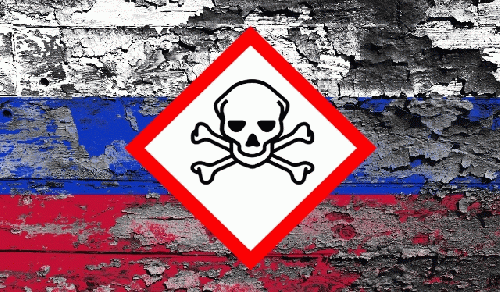International news is abuzz over the poisoning of yet another Putin critic. This time the victim is Alexei Navalny. He's been a de facto leader of activities in opposition to notorious Russian president Vladimir Putin.
Thankfully Navalny is still alive. He's now being treated in a Berlin hospital after becoming ill in Siberia.
The Washington Post reported: "After falling into a coma last week aboard a flight from Siberia, he was evacuated to Berlin for medical treatment."
Indeed, he was evacuated to Berlin following initial treatment in Siberia. But there is something suspiciously wrong with the Post's statement. Can you guess what it is? The report that he fell into a coma on the plane is bogus. He did not.
Where did the Post get that nonsense from? It could have been from the Associated Press. On August 21 it reported: "The 44-year-old opposition [sic] remained in grave condition in a Siberian hospital Friday more than a day after he became ill on a flight back to Moscow and fell into a coma."
I can see how that sloppy AP writing may have been misconstrued by the Post to mean Navalny fell into the coma on the plane.
But also on August 21, a New York Times report got the venue right: "Mr. Navalny was transported to the hospital [in Siberia] and fell into a coma." That's where the coma began, not on the plane. The Post certainly missed that important distinction.
Nonetheless there's still something very wrong even with the Times report. It's the manner in which Navalny ended up in the coma. Did Navalny really "fall into a coma"?
The above errors and falsifications had even been bested by a suspiciously specious report from Deutsche Welle on August 20. Get a load of this: "The 44-year-old ex-lawyer apparently only drank black tea before taking off from Omsk airport, which his team thinks was laced with a toxin that put him in a coma."
Navalny very well may have drunk black tea. But he did not take off "from the Omsk airport." He actually took off from Tomsk. When Navalny became ill in flight, the pilot made an unscheduled landing in Omsk so Navalny could seek treatment.
However, the most significant falsity in DW's report is in the statement that Navalny's team thought the tea "was laced with a toxin that put him in a coma." There's good reason to suspect that the tea was really laced with poison. But that's not what put Navalny into a coma. DW was negligent in not validating the assertion of the Navalny people.
And that's the mistake that is shared by the above media outlets and many others. I find one report after another that claim the Navalny slipped into a coma. It's an allegation that the poisoning was so severe that it precipitated a coma.
That allegation certainly sensationalizes the story. But it is absolutely untrue.
(Note: You can view every article as one long page if you sign up as an Advocate Member, or higher).






